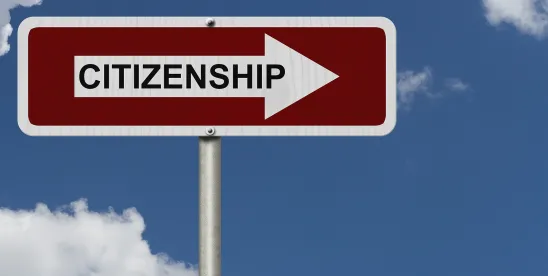On June 27, 2025, the Supreme Court of the United States held that federal district courts likely lack the authority to issue universal injunctions blocking presidential actions nationwide, a ruling that is likely to allow the Trump administration to continue enforcing executive orders (EO) or other policies despite legal challenges to their constitutionality.
Quick Hits
- The Supreme Court ruled that federal district courts likely lack the authority to issue universal injunctions blocking presidential actions nationwide.
- The Court found that the Judiciary Act of 1789 does not provide for universal injunctions, emphasizing that equitable relief must be tailored to the specific plaintiffs involved in a case.
- The decision will potentially allow the Trump administration to continue enforcing its executive orders despite ongoing legal challenges, while not commenting on the constitutionality of the specific executive order regarding birthright citizenship.
In the 6–3 decision in Trump v. CASA, Inc., the Supreme Court found that the Trump administration was likely to prove that the U.S. Congress did not provide district courts with equitable authority to issue universal injunctions in the Judiciary Act of 1789. The decision comes in cases alleging President Donald Trump’s EO limiting birthright citizenship is unconstitutional.
Three district courts have issued universal injunctions blocking the enforcement of the EO. Universal injunctions, often referred to as nationwide injunctions, are court orders that apply to a broader group of affected individuals or entities across the country.
“These injunctions … likely exceed the equitable authority that Congress has granted to federal courts,” the Court said.
The Supreme Court granted the administration’s applications to stay the injunctions “to the extent that the injunctions are broader than necessary” and ordered the lower courts to “move expeditiously to ensure that, with respect to each plaintiff, the injunctions comport” with the ruling and the principles of equity.
The ruling has significant implications for the powers of the federal courts and their authority to enjoin government actions beyond how they affect parties in a case. However, the Court expressly did not address whether the EO limiting birthright citizenship is unconstitutional.
Background
The decision stems from three cases brought by a group of individuals, organizations, and states alleging that challenging President Trump’s EO 14160, which asserted that citizenship may only be conferred to children with one or more parents who hold U.S. citizenship or lawful permanent resident (LPR) status (i.e., a “green card”). The plaintiffs alleged the EO violates the Fourteenth Amendment to the U.S. Constitution’s Citizenship Clause and Section 201 of the Nationality Act of 1940.
Federal district courts in each case ruled the EO is likely unconstitutional, and each court entered a universal injunction barring the enforcement of EO 14160 against anyone, not just the plaintiffs. The Trump administration sought stays of those universal injunctions but was denied by the First, Fourth, and Ninth Circuit Courts of Appeals. The Trump administration then filed emergency applications to the Supreme Court seeking partial stays limiting those injunctions.
Equitable Authority
The Supreme Court reasoned that the Judiciary Act of 1789, which authorizes federal courts to issue equitable remedies, does not extend to universal injunctions, as such remedies were not traditionally available in the High Court of Chancery in England at the time of the founding. The Court said the only “analogous” form of relief is the type of relief modern U.S. courts are only authorized to provide in class actions under Rule 23 of the Federal Rules of Civil Procedure.
The Court further emphasized that injunctions should provide “complete relief” to the plaintiffs, but should not extend beyond what is necessary to achieve that relief. The Court said “‘[c]omplete relief’ is not synonymous with ‘universal relief,’” which it said is a “narrower concept” that addresses providing relief between the parties.
“Here, prohibiting enforcement of the Executive Order against the child of an individual pregnant plaintiff will give that plaintiff complete relief: Her child will not be denied citizenship,” the Court said. “Extending the injunction to cover all other similarly situated individuals would not render her relief any more complete.”
The plaintiff had argued that universal injunctions allow courts to protect groups from unlawful government actions. In contrast, the Trump administration had argued that blocking government action forces the government to seek stays and thereby requires federal courts to resolve difficult legal questions on an expedited basis without full briefing. However, the Court declined to address such policy arguments, holding that “well-established precedent” establishes the limits of equitable relief that district courts may provide.
“Nothing like a universal injunction was available at the founding, or for that matter, for more than a century thereafter,” the Court said. “Thus, under the Judiciary Act, federal courts lack authority to issue them.”
Rule of Law Questions
Justice Sonia Sotomayor issued a dissent, which was joined by Justices Elena Kagan and Ketanji Brown Jackson, arguing that the Court’s holding allows the government to continue to enforce an unconstitutional order against parties unless they file their own suit.
“The majority holds that, absent cumbersome class-action litigation, courts cannot completely enjoin even such plainly unlawful policies unless doing so is necessary to afford the formal parties complete relief,” Justice Sotomayor wrote. “That holding renders constitutional guarantees meaningful in name only for any individuals who are not parties to a lawsuit.”
Separately, Justice Jackson argued that the holding is an “existential threat to the rule of law” and that “courts must have the power to order everyone (including the Executive) to follow the law—full stop.”
Next Steps
The decision in Trump v. CASA, Inc., provides the Trump administration with a key judicial victory that will allow it to continue to enforce part of its EO on birthright citizenship against individuals who do not file suit, and could open the door for similar enforcement of other executive orders or policies that are facing constitutional challenges.





 />i
/>i
